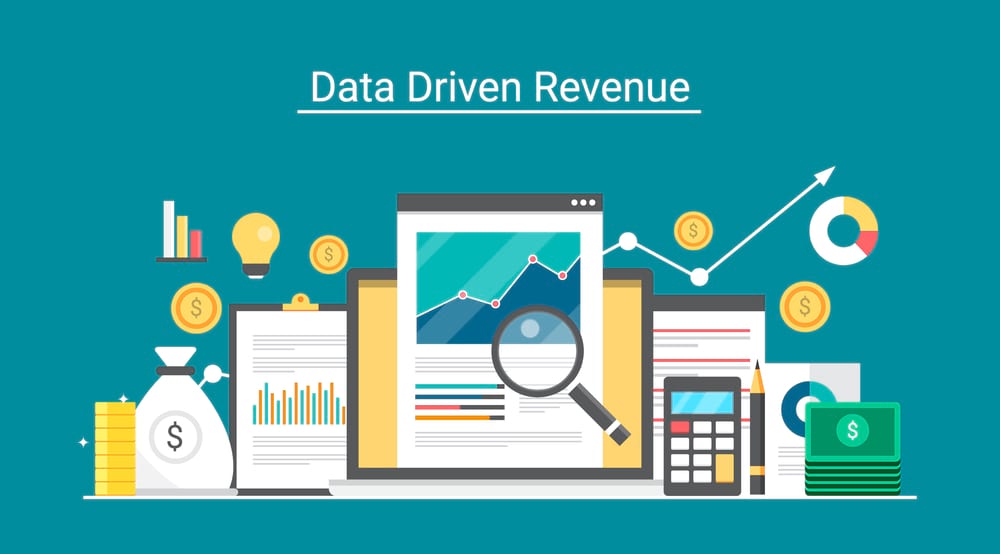The transformation of the Field Service necessarily involves becoming Data Driven
The data, the information, which is collected and generated on a day-to-day basis, have become one of the main assets of any organisation. In this sense, the Field Service Management tools are a valuable source in which to obtain insights with which to improve our service. For this reason, the data-oriented Field Service is one of the trends in field services to which greater importance is being granted. What does this mean for companies?

Working blindly or based on intuitions is already a practice of the past and of companies which, without intending to be, are self-limiting in their capacity for growth. Fortunately, we now have the means at our disposal to improve processes and get an advantage over our competition.
The Internet of Things drives us to be Data Driven
In the field services sector, the accumulation of data is increasing notably thanks to the adoption of new IoT (Internet of Things) devices which, conveniently integrated, allow us to simplify both reactive and preventive maintenance.
This is making it possible for many companies to provide better customer service and also save costs for the service provider, who has more resources to better organise the action schedules and the routes in the machinery/devices to be managed.
Therefore, Field Service is an activity which today, more than ever, must be data oriented. Organisations which do not become Data Driven will lose an important competitive advantage in relation to others in their environment which do take this strategic decision.
Now, how to become a Data-Driven company? The way to do it isn’t easy, because you must involve the entire organisation to achieve the desired goals. And restructure it precisely around the data. Applying concepts such as mobility, real time and the cloud, as we will see, is fundamental to success.
Data-oriented Field Service: the importance of access to information
It is necessary to break down the barriers which do not allow us to access the data. And we refer both to the tools which field professionals need to perform their work, conveniently informed, and to the resources in the office itself to analyse and make decisions.
Equipped with mobile devices which allow them to set aside their day-to-day activity, we will be able to turn their actions into data which we can then analyse in a centralised way. When the information is collected, and also in real time, we will be able to:
- Keep track of work orders and tasks performed.
- Consult the contracts with the clients and the details of the SLA.
- Keep track of the parts and the inventory.
- Control the fleet of machines installed with each client and the history of actions in each of them.
- Monitor the agendas of the technicians, their specific skills and availability.
- Pay proper attention to customer calls to attend to incidents with the corresponding priority in each case.
But we insist once again that today it’s not only customers or employees who can provide us with the information, we need to improve every day. The IoT sensors can and should also supply our Field Service Management solutions. With the right software we can analyse performance, predict failures and guarantee an uptime, which the customer will always appreciate, exceeding their expectations as much as possible.
This information can also even be shared with the manufacturers of the machines/devices which are the subject of our maintenance tasks, to improve their design from the origin. The integration of the entire ecosystem ultimately produces benefits for all parties involved.
Planning, measuring and analysing
It is a virtuous circle which needs to be put into practice. The availability of data in real time allows us to precisely identify trends, business opportunities and threats which we might not have contemplated. And all this can lead us to revaluate processes which we should improve.
We’ve left a fundamental concept to the end: the cloud. The possibility of managing databases and the infrastructure which supports applications from the cloud itself provides flexibility, scalability, security and continuous innovation. In addition to a feature of payment for use which, in many occasions, avoids an oversizing in unnecessary licenses.
Knowing the needs of this specific sector, we have been offering our customers a native cloud solution, Task4work, for years. A software for Field Service Management which is totally oriented to the data, able to respond to the needs of mobility, centralised management, analytics and integration which nowadays all kinds of organisations demand.


